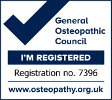Arthritis Research UK advice: diet and arthritis
Although there are no diets or dietary supplements that will cure your arthritis, some people do find that their symptoms improve as a result of changing what they eat. But because people are all different and there are many different types of arthritis, what works for one person and one type of arthritis may not work for another.
On balance, changing your diet probably won’t have as great an impact on your arthritis as your medical treatments, and we don’t recommend stopping any of your drug treatment without discussing it with your doctor first. But research has discovered several links between arthritis and diet, so it’s still worth thinking about what you eat. The two most important things to think about are:
- your weight – if you’re overweight, losing some weight will reduce the strain on your joints, so you may find you don’t need to take painkillers quite so often.
- whether your diet gives you the vitamins and minerals you need – a good diet can help to protect you against some possible side-effects of drugs and against heart disease (which can sometimes be a complication of certain types of arthritis).
- Some forms of arthritis, such as rheumatoid arthritis, and some drugs used to treat them are linked with an increased risk of heart and circulatory problems. Several of the diet and lifestyle changes which are useful for arthritis are also useful for heart and circulation health, including exercise and omega-3 fatty acids.
- a balanced and varied diet to get all the vitamins, minerals, antioxidants and other nutrients you need
- a more Mediterranean-style diet which includes fish, pulses, nuts, olive oil and plenty of fruit and vegetables. Arthritis Research UK has recently funded a grant into a study looking at whether a compound found in broccoli can slow the progression of osteoarthritis, for example.
- more omega-3 fatty acids, for example from oily fish.





